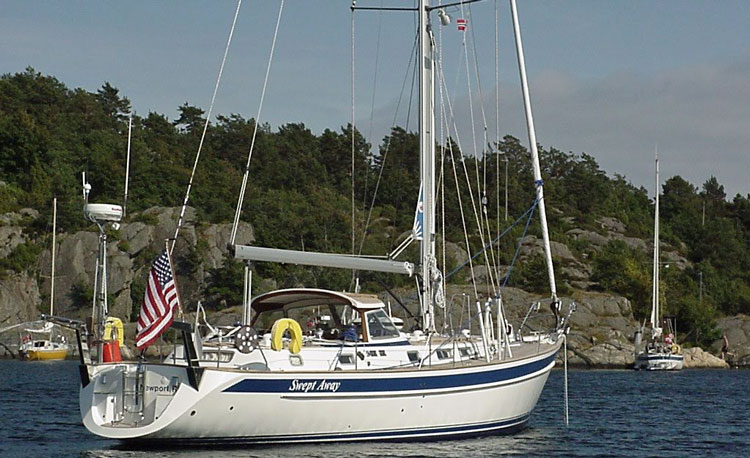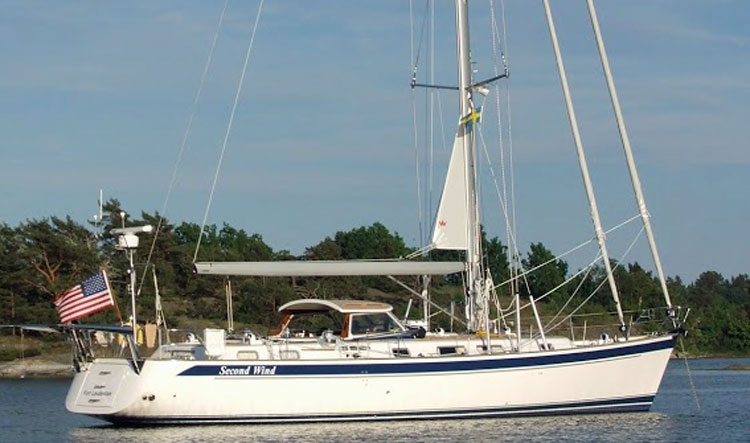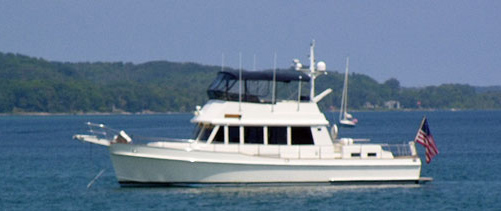 |
 |
 |
Sunday, June 19, 2011, in Portimão, Portugal
Hi all and a very happy Father’s Day. We’re in Portimão, not far from Lagos, Portugal, where we have spent the last week.
Lagos is an old settlement, from Punic times, and its history is storied, but checkered. It’s the place where the caravel sailing ship was built in the 15th century, a lightweight, lanteen-rigged vessel that explored the African coast during Portugal’s age of discovery. Both Prince Henry the Navigator (who oversaw its development) and Gil Eanes (who sailed beyond the end of the world, Cape Bojador in Western Sahara) based their explorations in Lagos.
Europe’s first slave market opened in 1444 in Lagos, and it’s a dismal sight to see on an otherwise grand square. The first slaves were brought to Portugal from Mauritania, as well as other “treasures” from Africa: ivory, gold, and pepper. To its credit, Portugal was the first European nation to abolish slavery. In an odd pairing of events, Mauritania was the last country on earth to abolish slavery by law, in 1981.
A stop at the tourist information center alerted us to a celebration of St. Anthony’s holiday, the traditional “midsummer” celebration in Lisbon and the surrounding areas. All over Europe, the midsummer holiday (which celebrates different reasons in every place we've seen it) always seems to involve someone jumping over a bonfire. The bonfire is a pagan tradition that’s been recaptured in semi-religious ardor. Ironically, the purpose of jumping over the fire is to ensure your safety for the following year.
While we didn’t see any bonfires at the neighborhood celebration we attended, we did get to watch several of the traditions unfold. As directed, we walked to a building of unknown normal purpose that was temporarily recruited as a celebratory plaza.
St. Anthony is the matchmaker saint, so there is a lot of romance. There’s a delicate basil plant, called manjerico, that’s offered to the loved one in the way that chocolates honor St. Valentine. But there’s a catch for would-be suitors – you’re also supposed to provide a love poem.
Other traditions were around us. The street was decorated with brightly colored paper streamers. A singer performed upbeat tunes, accompanied by an accordion, and middle-aged ladies danced on a makeshift driveway/dance floor. A long table parallel to the exterior wall of the building was staffed by people selling food and drinks for embarrassingly low prices. A barbecue grill not much bigger than something you’d have at your house was stocked with as many sardines as could fit (a popular dish on any menu, but with spiritual significance to St. Anthony.) People were dabbing with tiny spears at caracols, tiny sea snails served in giant piles on paper plates. I succumbed to the sardines, and learned to eat them in the way of the locals.
We lasted as long as we could, but the chill of the night air finally took its toll. We’d dressed for late afternoon temperatures. We walked back through the old town, where restaurants had set up tables across the walking streets, souvenir shops were still open, and families were eating ice cream.
A combination of circumstances led us to spend a week in Lagos, without a touring agenda or a weeklong list of boat tasks. Instead, we enjoyed the tropical postcard images in every direction. Bursts of bougainvillea and hibiscus far from gardens, on city streets and over dilapidated buildings. Blankets laid out perfectly on the sidewalk and decorated with fake designer sunglasses for sale, the merchandise dusted gently every few moments by the presiding Africans. The storks making their nests atop abandoned smokestacks in fields cleared of erstwhile factories. An endless variety of black mosaic cobblestone designs on sidewalks, Restaurant menu items in English, with tiny Portuguese explanations below.
Music is one of life’s pleasures that transcend language, and a poster announced a classical guitar concert in the cultural center. This turned out to be more of a recital than a performance, and it did appear that the audience held a fair percentage of beaming relatives with tiny video cameras. But the guitarists were capable, and we’d never seen so many in a performance at a single time.
First, a group of four guitarists and a cello performed. Then they left the stage and five guitarists and a violin took over. After three or four such groups, playing classical pieces that weren’t composed with guitars in mind, the musical director moved around some chairs, and about two dozen musicians came out on stage with their guitars (and the aforementioned violin and cello.) They played selections as if from a pops program, ranging from a recognizable segment from Beethoven’s 7th Symphony to a very recognizable rendition of Santana’s “Black Magic Woman”. A soprano helped out with two vocal pieces. The sound of all the guitars together was almost orchestral. At the end, a standing ovation rose in crescendo, like a wave in a stadium, taking over the middle-aged parents, and hooting from the performers’ siblings in the audience.
The one omnipresent feature of the week was the wind, sometimes whistling, sometimes howling, inside the marina from the morning on. Someone we met explained that the shape of the land was causing this wind in this spot, and that a few miles away, the winds were less intense. I have a particular aversion to the sound of strong winds, which are present every time I’m seasick and every time we have some nighttime disaster of pounding docks or dragging anchors. Luckily, the winds weren’t relentlessly taunting me. On the plus side, afternoon temperatures were pleasant, the mornings were cool and the nighttime air was perfect for cozying up under a comforter. The hot summer is still ahead.
Not a problem for me.
Hope you’re having a fantastic Father’s Day. We’re far away, but we’re thinking about you fathers and mothers and people who made them fathers and mothers. Have a great week.
Love, Karen (and Art)